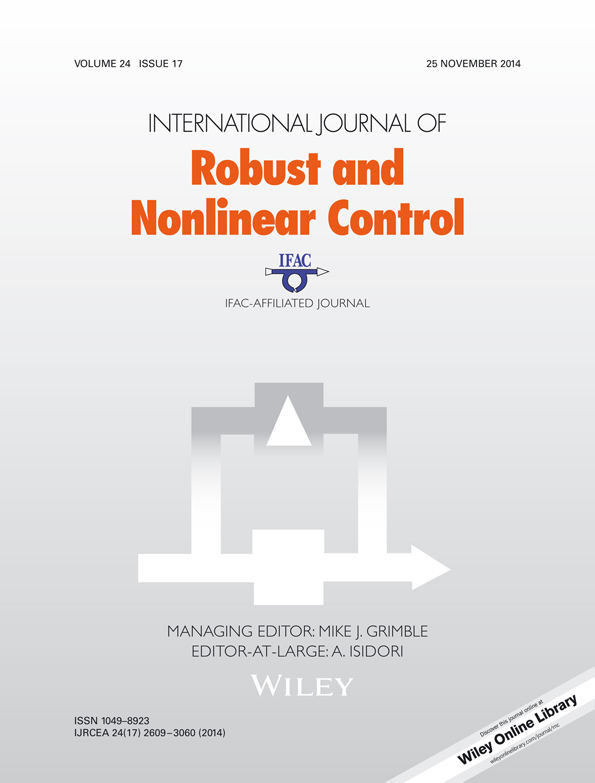Event-driven actuators: to zero or to hold?
SUMMARY
This paper investigates networked control systems where a number of actuators are involved but only a subset of them is assigned to be active at a time. The assignment of actuators is driven by a random event modeled as a Markov chain. When an actuator is not assigned access to the current control signal, either a zero or the output of a zero-order hold (ZOH) is used as the control signal. For both cases, a stability analysis and control design framework dependent on the states of the Markov chain is established for linear discrete systems. It is shown that the resulted sufficient and necessary stability condition for the zero-based system is more easily solvable than that of the ZOH-based case. Numerical examples have shown that the use of zero control may yield better performance than the ZOH strategy. Copyright © 2013 John Wiley & Sons, Ltd.




